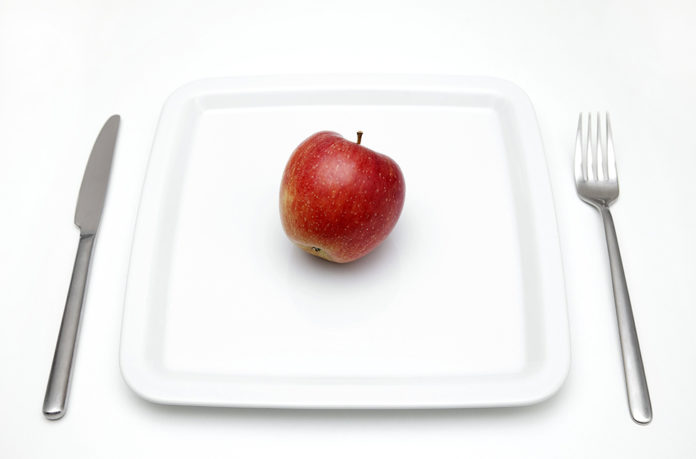
We help decode the mystery around healthy eating and supplementing your diet so that you can adopt an eating plan that works for you.
By: Dr. Afsoun Khalili, ND
Despite the vast amount of information that exists on diet and supplementation, consumers are still confused as to what exactly healthy eating entails. Here’s what you need to know about getting the nutrients you need, and making sure there isn’t anything missing from your diet.
Whole Food Must-Haves
In a nutshell, the more foods you eat in their whole form the better – organic and locally grown are ideal. Aim to eat a large variety of complex carbohydrates, including vegetables and whole grains, each day. Most fruits, dairy products, legumes, and even nuts and seeds also contain some complex carbohydrates. What’s key is to keep your diet natural, and stay away from processed foods and sugar-sweetened beverages, desserts and refined grain products as much as possible.
Fibre is also an essential component of a healthy diet. There are two basic forms: soluble and insoluble. Soluble fibre may help improve cholesterol and blood sugar levels. Avocado, Brussels sprouts, legumes and oats are examples of soluble fibre. Insoluble fibre, on the other hand, helps prevent constipation by adding bulk to stools. Vegetables, wheat bran and other whole grains are good sources of insoluble fiber.
Protein, from both animal and plant sources is necessary for growth and development. In my experience many people lack adequate amounts of protein in their diet. The World Health Organization recommends 0.8 grams of protein per kilogram of weight per day for the average sedentary person. Those with active lifestyles or nursing moms will have higher requirements. It’s best to speak to a health care professional for your specific protein needs.
Good fats also play an important role in a healthy diet. Without dietary fat, your body will not be able to absorb fat soluble vitamins like A, D, E and K. Good fats help maintain the structure and function of your cell membranes and help with your hormone production and keep your immune system strong. Unsaturated fats from various fish and lean poultry, olive oil, nuts and seeds and their oils are all good sources of fat. Omega-3 fatty acids are considered essential fats because your body is unable to naturally produce them. Foods high in Omega-3 include cold-water fish like salmon, mackerel and sardines, flax seeds and flax seed oil, vegetable oils, nuts (especially walnuts), and leafy green vegetables.
Many of us are aware that trans fatty acids are detrimental to good health. They can increase the risk of heart disease and should be avoided as much as possible. Though trans fats do occur naturally in some foods from animal sources, most are created during food processing through partial hydrogenation of unsaturated fats. Margarine, shortening, snack foods, commercially baked goods and deep fried foods usually contain trans fats.
Supplementing Your Diet
Supplements should not be a replacement for healthy eating. We get far greater nutrition from eating a whole food than we would from just taking a supplement. Take kale for example, it is both high in protein and fibre and contains vitamins A, C, K, folate and omega-3 fatty acids in the form of alpha linoleic acid. Kale also contains lutein and zeaxanthin, which give the veggie its deep green colour and protects against macular degeneration and cataracts. Minerals including phosphorus, potassium, calcium and zinc are also found in kale. No wonder it’s referred to as a superfood!
However, there is evidence to suggest that some supplements can enhance your health, even if you are doing your best to eat healthy. The most popular supplements are multivitamins, calcium, folic acid and vitamins A, B, C and D. Calcium and vitamin D are both important in maintaining healthy bones, folic acid helps us produce and maintain new cells, and vitamin A maintains healthy vision and a strong immune system. Vitamin B12 helps keep nerves healthy and gives us energy. Vitamin C is high in antioxidants; the molecules that prevent cell damage and help us maintain health and a youthful appearance. Several studies suggest fish oil can promote heart health.
There are a few instances when people have special supplement needs.
Pre- and Post-Natal
Folic acid is important for all women of childbearing age. Most women require extra iron during pregnancy and can also benefit from a pre-natal multi-vitamin.
Breastfed infants need 400 daily International Units of vitamin D.
Aging
There is evidence that most adults age 50 and older should eat foods containing vitamin B-12, or consider taking a B-12 supplement.
Vegetarians and Vegans
Vegans and vegetarians, as well as those who don’t obtain two or three servings of fish a week, should take omega-3 fatty acid supplements. Vegans may also want to consider taking Vitamin B12 because the best sources are meat, fish and dairy products.
Special Instances
Women who experience heavy bleeding during their menses or those suffering from chronic medical conditions that affect the way their body absorbs or uses nutrients, such as chronic diarrhea, food allergies, food intolerances, or conditions that affect the liver, gallbladder, intestines or pancreas would benefit from taking specific supplements and should speak with their family or naturopathic doctor.
Finding What’s Best for You
In terms of finding the best supplements to fit your needs, in the appropriate doses, it’s important to speak to a naturopathic doctor or other health care provider. Be sure to inquire about possible side effects and interactions with any medications you might be taking.
I like to quote Epicurus in terms of finding balance in the way you eat: When in doubt, remember that moderation is usually the key. I often refer to a saying by Epicurus: “I believe it is best to adopt moderation in what we do. Be moderate in order to taste the joys of life in abundance.”
If you are eating refined or processed foods regularly you are not adopting moderation in your diet. On the other hand, complete deprivation is not a good idea either as it usually leads to strong cravings and over indulgence. Let’s face it, living a joyous life means occasionally indulging in your cravings. Just make sure that most of the food you eat is healthy!
The Way We Eat. Recent findings from *Health Canada:
- 5 in 10 women and 7 in 10 men have energy intakes that exceed their energy needs.
- 25% of males and 23% of females have fat intakes above the Acceptable Macronutrient Distribution Range.
- 32% of males and 21% of females have carbohydrate intakes below the Acceptable Macronutrient Distribution Range.
- Many adults have inadequate intakes of magnesium, calcium, vitamin A and vitamin D.
- There is concern that Canadian adults may not be meeting their needs for potassium and fibre, although the interpretation of the adequacy of nutrients with an Adequate Intake (AI) is limited.
- Canadian adults’ high sodium intakes are associated with an increased risk of adverse health effects.
*Results are for Canadians ages 19 and over.








